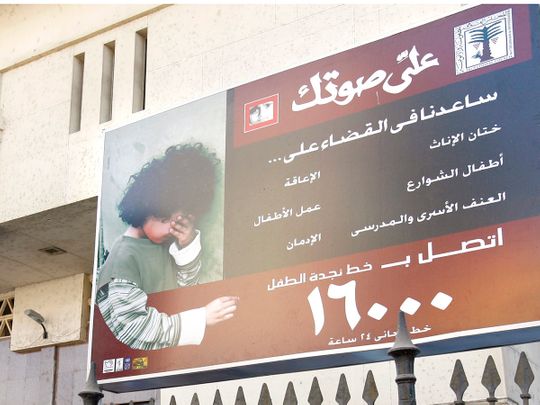
Abu Dhabi: Egypt’s parliament Sunday passed a draft law banning female genital mutilation (FGM), imposing jail terms of up to 10 years as part of efforts to stamp out the ancient practice, local media reported.
In March, the House of Representatives approved the bill submitted by the government, and it was sent to the Legislation Department of the State Council for review.
Nearly 90 per cent of Egyptian women and girls aged between 15 and 49 have undergone FGM, according to a 2016 survey by the UN Children’s Fund (UNICEF), and the ritual is practised widely by both Muslims and Christians despite the ban.
The FGM law, also approved by Al Azhar, the highest authority in Sunni Islamic thought and jurisprudence, include hiking the maximum sentence to 10 years from the current seven years, banning doctors and other medical staff involved in FGM from practising their profession for up to five years and shutting down the medical facility.
Under the law, prison terms of between five and 10 years will be recommended depending on who performed the surgery and whether it caused permanent damage or death.
The person requesting FGM will also face imprisonment of up to 10 years, according to the law, which must still be approved by the president.
FGM typically involves the partial or total removal of the external genitalia and can cause long-lasting mental and physical health problems including chronic infections, infertility and childbirth complications.
It is the second time that Egypt’s government has approved amendments to the legislation banning FGM.
The law was tightened five years ago to make it a criminal offence to request or carry out the widely condemned practice.
But highlighting the difficulty of eliminating FGM in Egypt, where there is widespread acceptance of it, no one has been successfully prosecuted under the 2016 law and women’s rights groups say the ban has not been well enforced.
According to a study by UNICEF in 2017, Egypt ranked fourth in the world and third in the Arab countries, in terms of the number of women who have undergone circumcision.
The UNICEF report noted the prevalence of female circumcision in Egypt in 2000 was up to 97 per cent, and recorded a decrease in 2015 to 92 per cent, then to 87 per cent in 2016, but the prevalence of this practice hiked again to 91 per cent in 2017.








